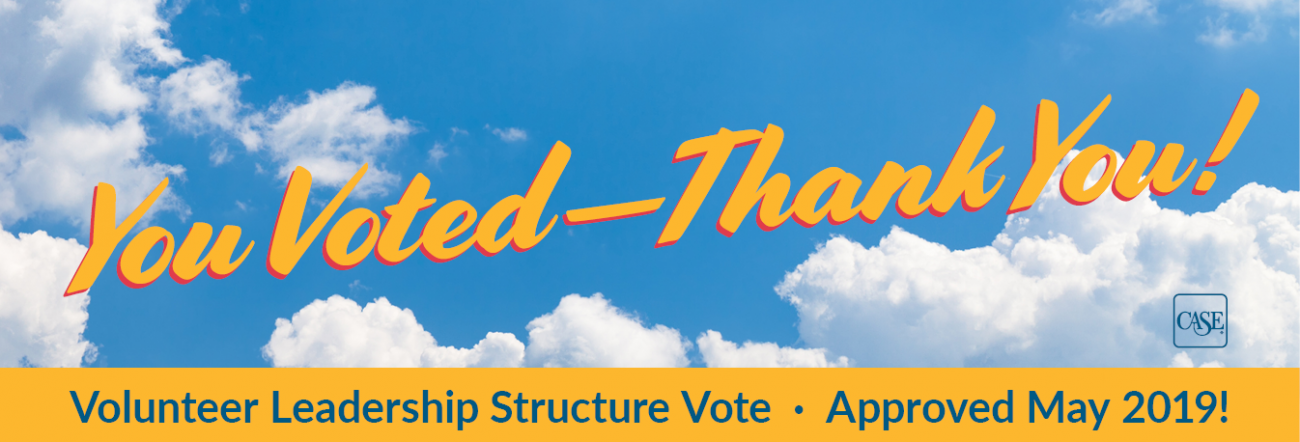
Governance: OneCASE

CASE members around the world voted in support of the new volunteer leadership structure. CASE is incredibly grateful to the volunteers and members who were a part of this monumental vote.
A message from CASE President and CEO Sue Cunningham
Vote by the Numbers
39
Countries Represented
1,254
Votes YES
37.5
percent of CASE membership who voted
Governance Q&A
Volunteer Leadership Structure Committees
CASE is grateful to all who are involved in this journey, especially to the volunteers who have defined and guided our work.